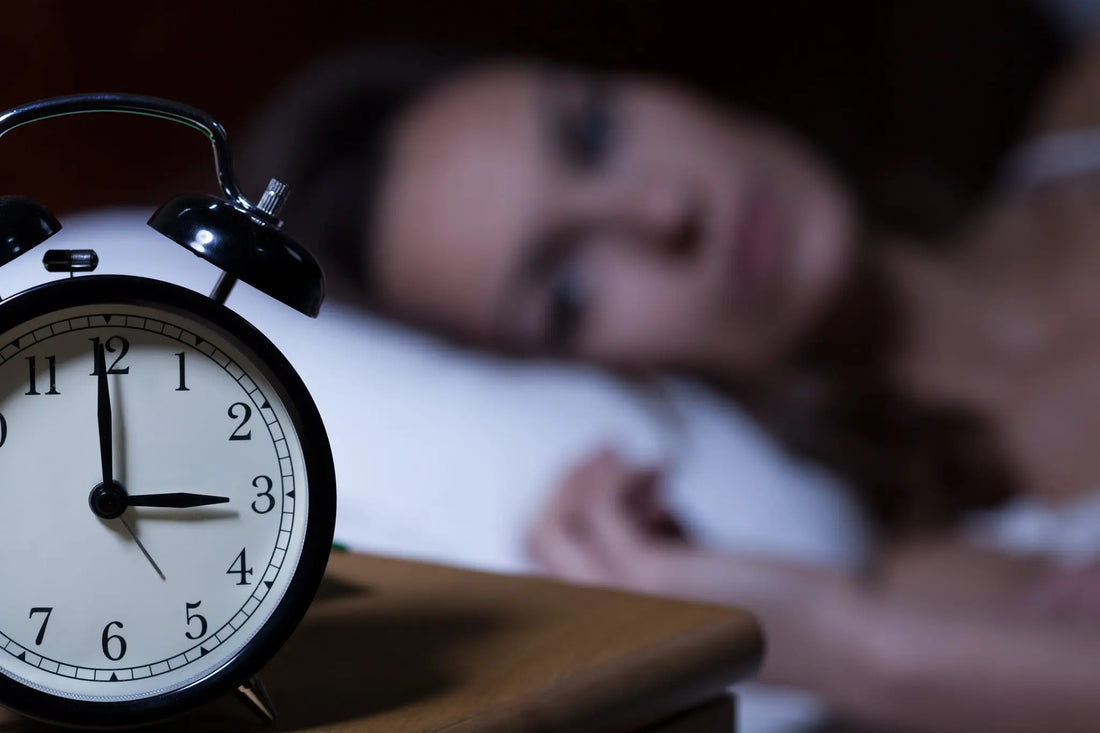Sleep is a fundamental pillar of health, impacting everything from cognitive function to emotional well-being. Many people struggle with sleep issues. While the cause of some poor sleep is easy to identify—such as having to take care of a newborn or getting up to frequently yo go to the bathroom—others are harder to pinpoint:
Some people struggle with falling asleep, tossing and turning for hours; others fall asleep without issue but wake up in the middle of the night, unable to return to slumber; and some individuals repeatedly hit the snooze button in the morning, struggling to fully wake up.
These varied patterns of sleep disruption often indicate underlying cause of the body's natural rhythms is being out of sync. This phenomenon has a scientific term called circadian rhythm misalignment.
Understanding Circadian Rhythms
Circadian rhythms are natural, internal processes that regulate the sleep-wake cycle and repeat roughly every 24 hours. They are influenced by external cues like light and temperature.
Humans are inherently diurnal creatures, naturally programmed to sleep at night when it is dark and to be active during the daylight hours. This alignment with the Earth's light-dark cycle is deeply rooted in our biology. Exposure to natural light during the day helps regulate our circadian rhythms by signaling to our brain that it is time to be awake and alert. Conversely, darkness triggers the production of melatonin, a hormone that promotes sleep. This natural rhythm ensures that our sleep-wake cycles are in sync with the environment, promoting restorative sleep and optimal daytime functioning.

The Modern Lifestyle Contributes to Circadian Disruption
A healthy circadian rhythm is the foundation for good sleep, helping to ensure that we fall asleep and wake up at appropriate times. However, in our modern world, our circadian rhythm is facing many challenges.
Technological advancements have provided immense convenience in our daily lives, but they have also had a detrimental impact on our circadian rhythms. The invention of airplane, while making global travel accessible and efficient, has introduced the phenomenon of jet lag. Crossing multiple time zones rapidly confuses our internal clocks, leading to significant circadian misalignment. The invention of electricity revolutionized the way we live, enabling us to extend our activities well into the night. However, artificial lighting at night time disrupts our natural sleep-wake cycles by interfering with melatonin production. Similarly, social media and video streaming frequently entices people to stay up late. The engaging content and stimulating blue light from devices can further contribute to delaying bedtime and disrupting the natural sleep-wake cycle.

1 in 3 People Experience Poor Sleep Due to Circadian Clocks Being Out of Sync
Certain behaviors and populations are particularly susceptible to circadian rhythm misalignment:
- Shift Workers: Those who work night shifts or rotating shifts often struggle to maintain a consistent sleep schedule. Their work hours force them to be awake during times when their body expects to sleep, leading to chronic misalignment.
- Frequent Travelers: Individuals who frequently travel across time zones, such as flight attendants and business travelers, experience repeated disruptions to their circadian rhythms.
- Parents of Infants and Young Children: Parents often experience fragmented sleep and irregular sleep schedules due to the demands of caring for young children, especially newborns.
- Students: Teenagers and young adults, particularly those in college, tend to stay up late and wake up early for classes, disrupting their natural rhythms. The use of electronic devices late into the night exacerbates this issue.
- Remote Workers: Those who work from home might have irregular schedules, as the lack of a fixed routine and the temptation to work late into the night can lead to disrupted sleep patterns.
- Elderly: As people age, their circadian rhythms often shift, leading to earlier bedtimes and wake times. However, lifestyle factors and health conditions can further disrupt their sleep patterns.
- Natural Night Owls: Individuals who naturally prefer staying up late and waking up later in the day may find it challenging to align their schedules with societal norms, leading to chronic circadian misalignment.
- Individuals with Irregular Bedtimes: Studies shown that irregular sleep for as short as 2 nights in a row could cause disturbance in the circadian clocks. If you like to stay up over the weekends, chances are your sleep would take a hit when coming back to Monday schedule.
The Subtle Circadian Rhythm Misalignment
If you don't fall into the above-mentioned populations at risk but still experience poor sleep without an obvious reason, it might be time to consider whether you have a slightly misaligned circadian rhythm.
Your experience may include difficulty waking up in the morning despite a full night's sleep, needing to snooze multiple times before being able to get up, experiencing a second wind of alertness late in the evening, or having no problem falling asleep but waking up after 3-4 hours of sleep.
If we think of circadian rhythm as the foundation for sleep, what we're discussing here isn't akin to a sinking foundation, but more like a slightly misaligned door or cracked drywall. The effects of circadian rhythm misalignment aren't as severe as jet lag, but they still hinder your ability to achieve a full night's restful sleep.

What can we do to fix the foundation?
Maintaining Healthy Circadian Rhythms
As modern lifestyles continue to challenge our natural sleep-wake cycles, it is essential to recognize and mitigate factors that contribute to circadian misalignment. Simple changes like the following can significantly improve circadian health:

